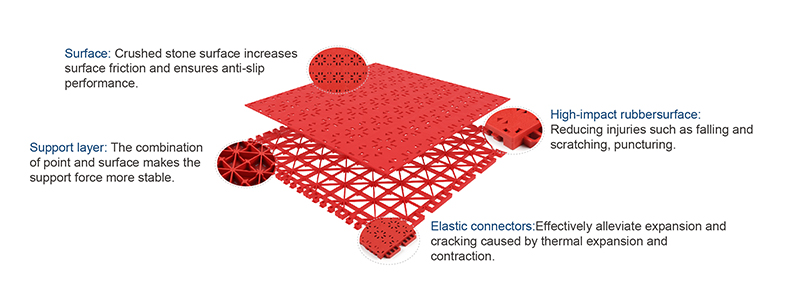ഡിസം . 11, 2024 03:54 Back to list
Exploring Various Types of Flooring for Commercial Spaces and Their Benefits
Exploring Various Types of Commercial Flooring A Comprehensive Guide
When it comes to designing and renovating commercial spaces, one of the most critical decisions involves selecting the right flooring type. The flooring not only serves a functional purpose but also influences the aesthetics and branding of a business. In this article, we will explore various types of commercial flooring, highlighting their benefits and ideal applications.
1. Carpet Tile
Carpet tiles, also known as modular carpets, are a popular choice for commercial environments such as offices, hotels, and schools. These tiles offer great flexibility in design and installation. Available in a myriad of colors, patterns, and textures, carpet tiles can be arranged in various configurations to create unique visual appeals. One of their significant advantages is their ease of maintenance; damaged tiles can be easily replaced without having to replace the entire floor. Furthermore, carpet tiles provide sound insulation, making them ideal for busy workspaces where noise reduction is a priority.
2. Vinyl Flooring
Vinyl flooring is an excellent option for businesses looking for durability and low maintenance. This type of flooring is resistant to scratches, stains, and water, making it suitable for high-traffic areas. Vinyl comes in sheets, tiles, or planks, with a wide range of designs that can mimic natural materials such as wood or stone. It's also relatively easy to install, which can be a significant advantage for businesses aiming to minimize downtime during renovations. Vinyl flooring is an economical choice, particularly for environments like retail spaces, hospitals, and educational institutions.
Laminate flooring is another cost-effective solution for commercial settings. It consists of several layers, including a high-density fiberboard core and a photographic layer that replicates natural wood or stone. Laminate is known for its ease of cleaning and resistance to fading, scratches, and wear. Its quick installation process can significantly reduce labor costs. However, it's essential to note that while laminate can handle moderate traffic, it's not as durable as some other options like vinyl or tile, making it best suited for light to moderate use areas such as offices or conference rooms.
commercial flooring types

4. Hardwood Flooring
Hardwood flooring exudes elegance and can enhance the overall look of any commercial space, particularly in upscale restaurants, hotels, and retail stores. Available in various species, finishes, and styles, hardwood can complement a wide array of design aesthetics. Besides its beauty, hardwood flooring is durable and can last for decades with proper care. However, it requires regular maintenance and can be more expensive upfront compared to other flooring options. It's also worth noting that hardwood may not be suitable for high-moisture environments, as it can warp or swell.
5. Ceramic and Porcelain Tiles
Ceramic and porcelain tiles are well-regarded for their durability and versatility. These tiles are resistant to moisture, making them ideal for spaces like bathrooms, kitchens, and retail areas. Their resistance to scratches and stains is also a significant benefit for high-traffic environments. Available in countless colors, sizes, and finishes, these tiles can be arranged in various patterns to create eye-catching designs. However, the installation process can be more labor-intensive compared to other options, and the hard surface may not provide as much comfort for prolonged standing.
6. Polished Concrete
Polished concrete is increasingly popular in modern commercial spaces, particularly in industrial and retail environments. This flooring type involves grinding and polishing concrete to achieve a high-gloss finish. Polished concrete is durable, low-maintenance, and highly resistant to water and stains. It creates a sleek, contemporary look that is easy to clean. However, it can be slippery when wet, so businesses must consider safety measures, especially in high-moisture areas.
Conclusion
Selecting the right commercial flooring is essential for creating an inviting and functional space. Each type of flooring offers unique benefits that can cater to the specific needs of various environments. Whether you prioritize aesthetics, durability, maintenance, or cost, understanding the different flooring options can guide you in making an informed decision. By choosing the right flooring solution, businesses can create an impactful impression on their clients and enhance the overall employee experience.
-
Clay Court Pickleball Balls Durable, High-Visibility Design
NewsMay.08,2025
-
Pickleball Court Conversion Kits for Existing Tennis Courts Dual-Sport Solutions
NewsMay.08,2025
-
Professional Pickleball Court Installation & Conversion Services 60 Chars
NewsMay.08,2025
-
Convert Tennis to Pickleball Courts Indoor Courts in Tempe
NewsMay.07,2025
-
Outdoor Pickleball Court Cost & Installation Pricing Get Quote
NewsMay.07,2025
-
Affordable Indoor Pickleball Court Construction Expert Design & Cost Guide
NewsMay.07,2025

